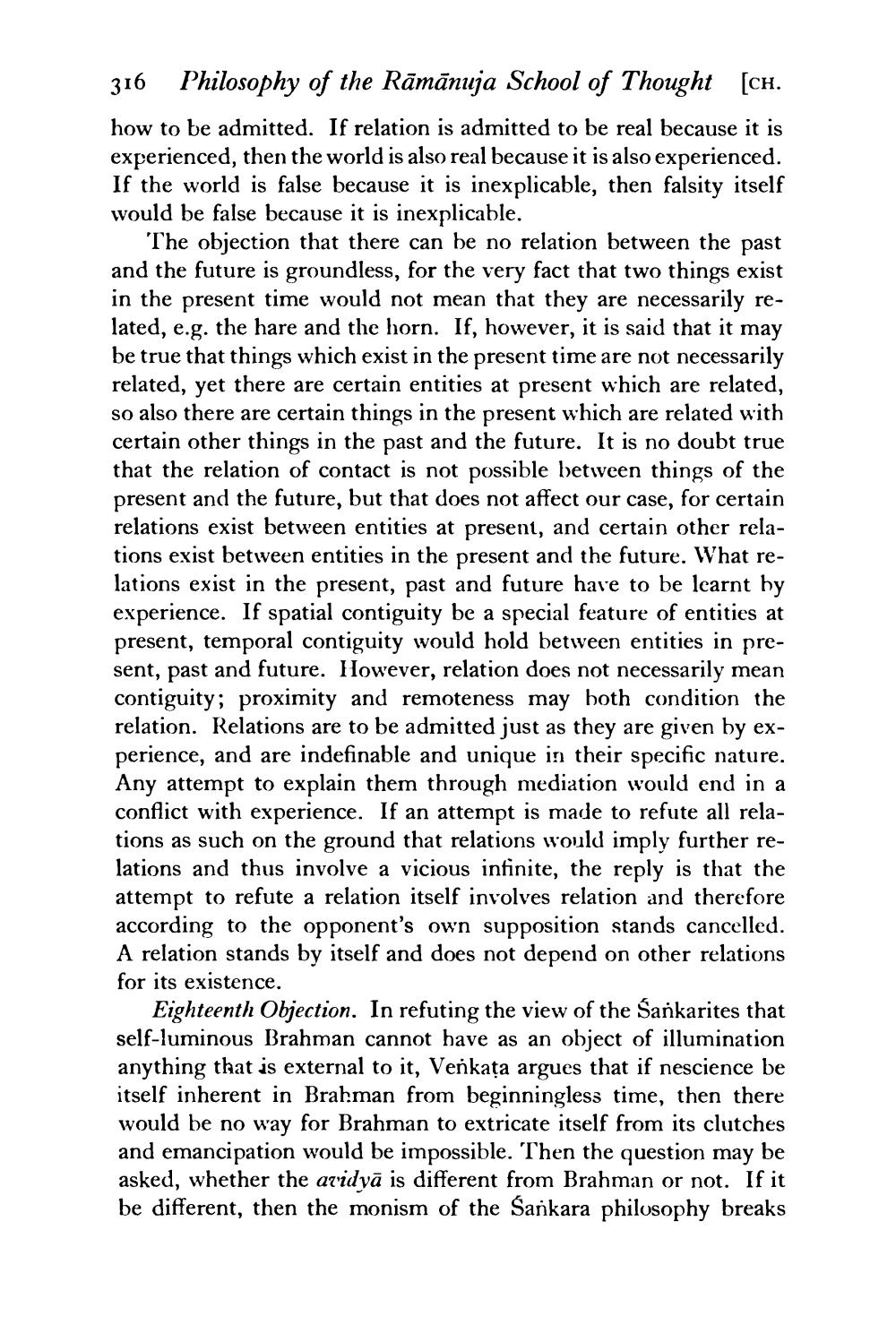________________
316 Philosophy of the Rāmānuja School of Thought [CH. how to be admitted. If relation is admitted to be real because it is experienced, then the world is also real because it is also experienced. If the world is false because it is inexplicable, then falsity itself would be false because it is inexplicable.
The objection that there can be no relation between the past and the future is groundless, for the very fact that two things exist in the present time would not mean that they are necessarily related, e.g. the hare and the horn. If, however, it is said that it may be true that things which exist in the present time are not necessarily related, yet there are certain entities at present which are related, so also there are certain things in the present which are related with certain other things in the past and the future. It is no doubt true that the relation of contact is not possible between things of the present and the future, but that does not affect our case, for certain relations exist between entities at present, and certain other relations exist between entities in the present and the future. What relations exist in the present, past and future have to be learnt hy experience. If spatial contiguity be a special feature of entities at present, temporal contiguity would hold between entities in present, past and future. However, relation does not necessarily mean contiguity; proximity and remoteness may both condition the relation. Relations are to be admitted just as they are given by experience, and are indefinable and unique in their specific nature. Any attempt to explain them through mediation would end in a conflict with experience. If an attempt is made to refute all relations as such on the ground that relations would imply further relations and thus involve a vicious infinite, the reply is that the attempt to refute a relation itself involves relation and therefore according to the opponent's own supposition stands cancelled. A relation stands by itself and does not depend on other relations for its existence.
Eighteenth Objection. In refuting the view of the Sankarites that self-luminous Brahman cannot have as an object of illumination anything that is external to it, Venkata argues that if nescience be itself inherent in Brahman from beginningless time, then there would be no way for Brahman to extricate itself from its clutches and emancipation would be impossible. Then the question may be asked, whether the avidyā is different from Brahman or not. If it be different, then the monism of the Sankara philosophy breaks




